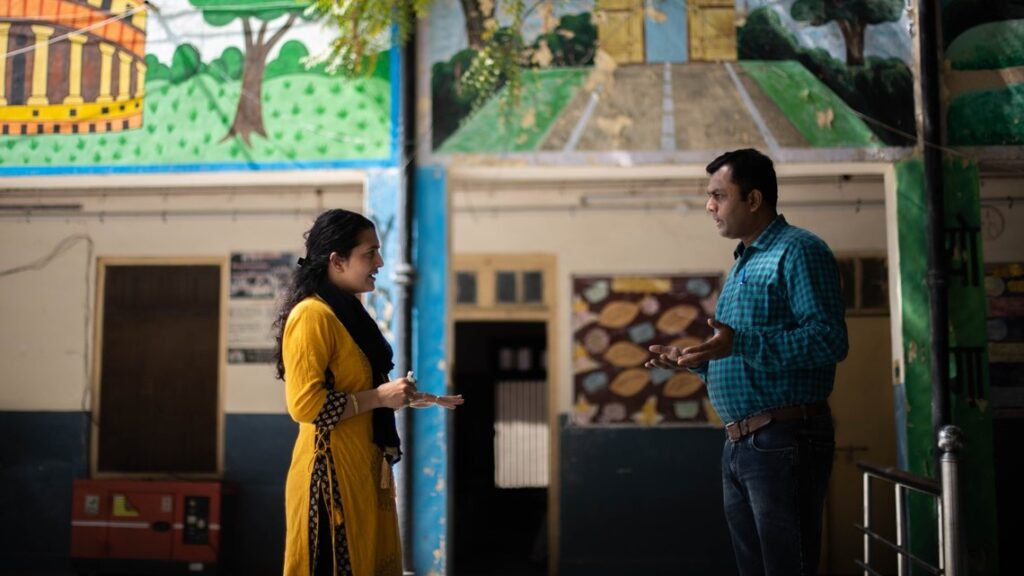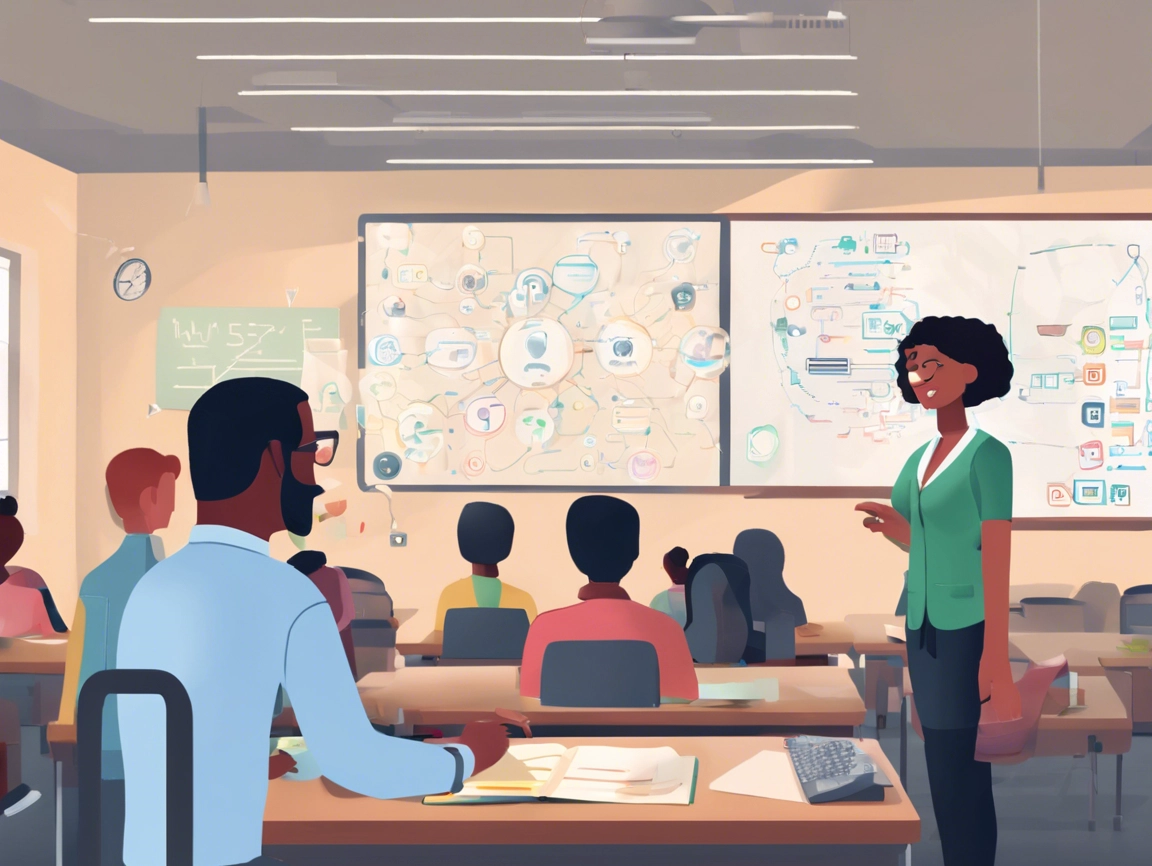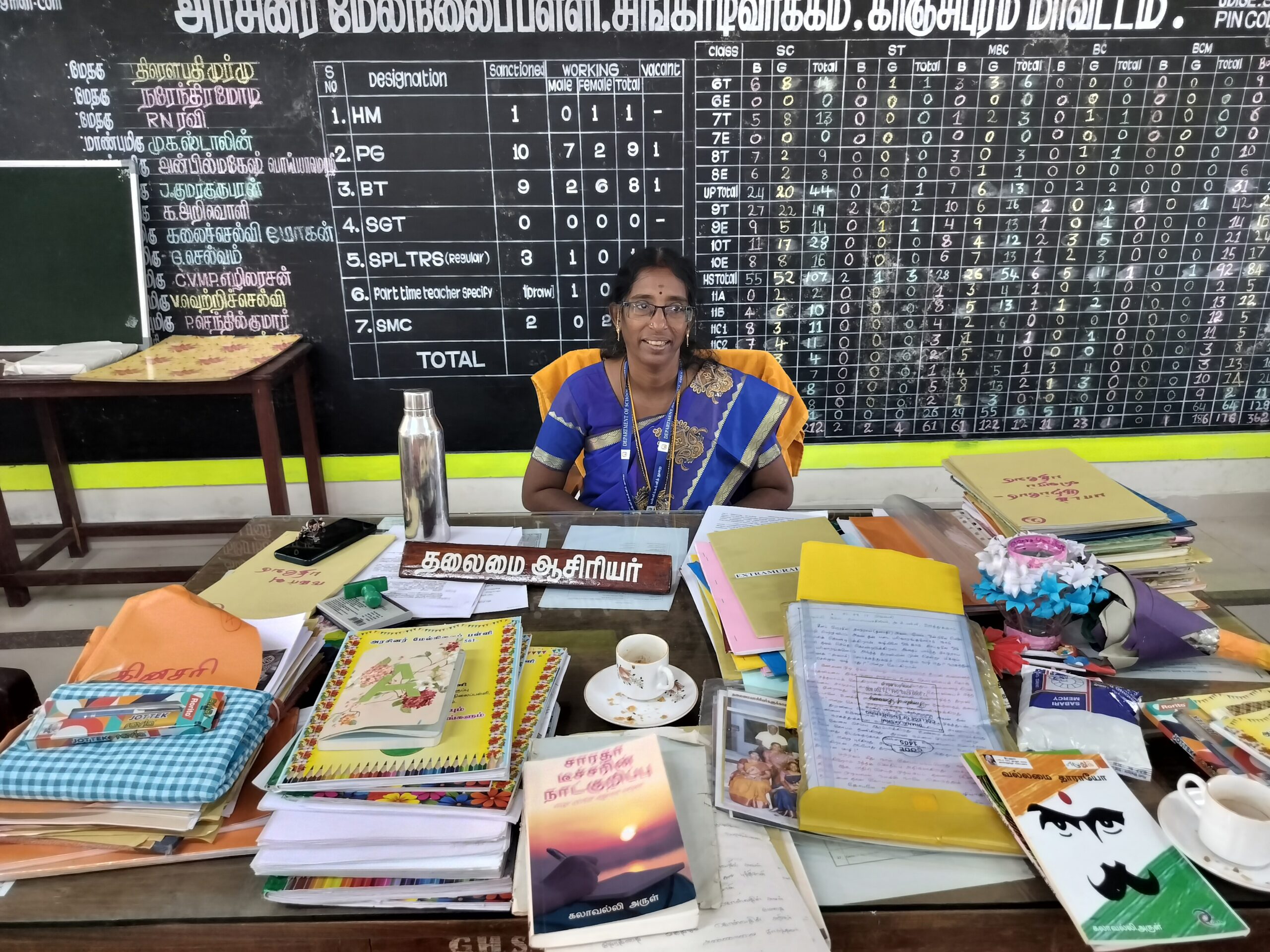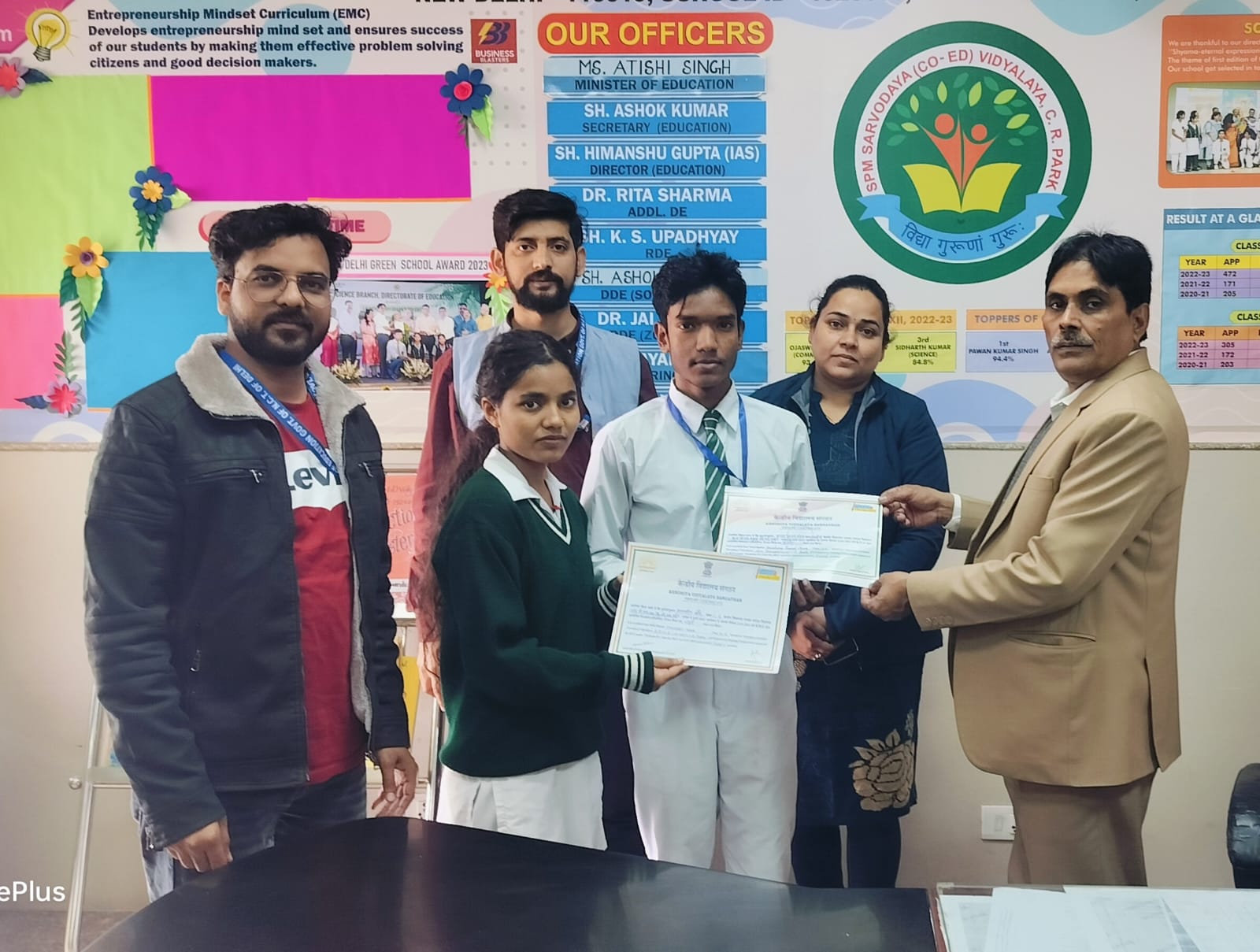Mission Buniyaad: Network Meetings for Student Learning

About Mission Buniyaad
The Directorate of Education (DoE), Delhi, first launched the Mission Buniyaad programme in 2018, with the goal to enhance students’ foundational literacy and numeracy skills (FLN) and support them in achieving grade-appropriate skills and competencies. The programme begins in April and continues throughout the summer vacation. To support the implementation of these activities, specially developed FLN-related teaching-learning material is shared with teachers and students. Parents are also aligned and involved in the process through regular programme orientations and meetings with teachers.
To support and augment the implementation of Mission Buniyaad, we designed and organised a 90-minute network meeting that was held in each school in May. The meetings provided a community of practice for teachers to engage and deliberate on Mission Buniyaad activities and develop an action plan to support students under this programme.
This particular meeting on Mission Buniyaad is in alignment with the state government’s priorities as well as the larger national mission of strengthening foundational literacy and numeracy (NEP, 2020).
Mission Buniyaad Network Meeting: Reflection, Planning, and Implementation
Various researchers and educators have repeatedly emphasised the importance of communities of practice, or a reflective space for discussion and collaboration. Wenger (1998) identified three characteristics of any community of practice: collaborative effort, mutual engagement, and shared repertoire. Teachers came together through network meetings to mutually engage and discuss their plans to support foundation literacy and numeracy in their respective schools. The network meeting on Mission Buniyaad created a reflective space and motivated teachers to come together for a joint venture and collaborate not only to improve their teaching-learning practices but also to think critically about what affects students’ foundational skills. During these meetings, teachers discussed practical challengesrelated to the achievement of foundational literacy and numeracy such as diverse learning styles, the need for ongoing support, and improving student engagement. They also used this space to brainstorm potential solutions for some of these challenges, such as encouraging peer learning, developing multi-level and engaging material, parental involvement, support and encouragement, and continuous assessment. These meetings also provided an opportunity for participants to share and adapt from each other’s practices. Dufour (2004) stated that the primary goal of any professional learning community is student learning and during these meetings, the collaboration was centred around improving student foundational learning and achievements
Role of Mentor Teachers
The Delhi Government launched the Mentor Teacher Programme in 2016 and created a cadre of Mentors who provide school based support to teachers to strengthen their academic and pedagogical skills. Each mentor teacher supports 5-6 schools.Mentor Teachers have been working closely with teachers in their mentee schools to strengthen students’ foundational skills. According to the Mentor Teachers, they assisted teachers in implementing Mission Buniyaad activities and strategies in their classrooms and role-modelled how these strategies should be implemented. They also encouraged the exchange of best practices among their mentee schools. Through coaching conversations and onsite support, they helped teachers to create effective and engaging Mission Buniyaad classrooms which can ultimately lead to increased learning outcomes.
Asha Massey, Mentor Teacher, explained, “The network meeting gave an opportunity to the teachers to recall and reflect upon the best practices used by them during the previous year’s Mission Buniyaad programme. They also discussed challenges and probable solutions while making action plans for the effective implementation of Mission Buniyaad this year.”
Rohit Upadhyaya, Mentor Teacher, explained, “It was actually the need of the hour at that time. All were in Mission Mode, and the network meetings were a very beneficial and welcoming step for the teachers in fulfilling the core objectives of Mission Buniyaad.”
The teachers within each school reflected on the challenges, strategies, support, and efforts required to ensure that all students are at par with the foundational literacy and numeracy standards and are not left behind.
Way Forward
These network meetings based on Mission Buniyaad not only provided teachers with support and assistance in developing their skills, but also gave them an opportunity to engage in a collective discussion about student learning with their peers and mentors, demonstrating how teacher collaboration can directly contribute to student achievement. Given FLN challenges and the emphasis on strengthening FLN post COVID times, CIM is now keen to organise such network meetings in primary schools that may help address foundational skills among students and provide teachers with an opportunity to focus on student learning and growth right from the primary level. Going forward, through such meetings, we can continue focusing on student learning at every grade level. Teachers can collaboratively identify areas of support, progress and mutually devise strategies to augment student learning through meaningful dialogue and deliberation.
Acknowledgements: Special thanks and gratitude to Ramesh Morwal (Mentor Teacher), Deepak Mittal (Mentor teacher), Asha Massey (Mentor Teacher), Rohit Upadhyaya (Mentor Teacher),Ms. Triveni Koli (TDC), and Ms.Tanuja Pandey (TDC). A detailed interaction with them helped generate useful insights on the topic. This article would not have been possible without their support.
Refrences
DuFour, R. (2004). What is a professional learning community? Educational Leadership, 61(8), 6-11
The Indian Express . (2023, May 19). The Indian Express . https://indianexpress.com/article/cities/delhi/mission-buniyaad-mcd-schools-delhi-minister-atishi-8617817/
The Indian Express (2023, May 19). Mission Buniyaad: MCD schools focusing on conducive learning environment for every child, says Delhi minister Atishi. The Indian Express. https://indianexpress.com/article/cities/delhi/mission-buniyaad-mcd-schools-delhi-minister-atishi-8617817/
The Indian Express (2023, April 24). Mission Buniyaad: Friday’s Mega PTM in Delhi to convince parents to send children to summer school The Indian Express. https://indianexpress.com/article/cities/delhi/delhi-mission-buniyaad-mega-ptm-summer-school-8572758/
Wenger, E. (1998). Communities of practice: Learning as a social system. Systems thinker, 9(5), 2-3.



